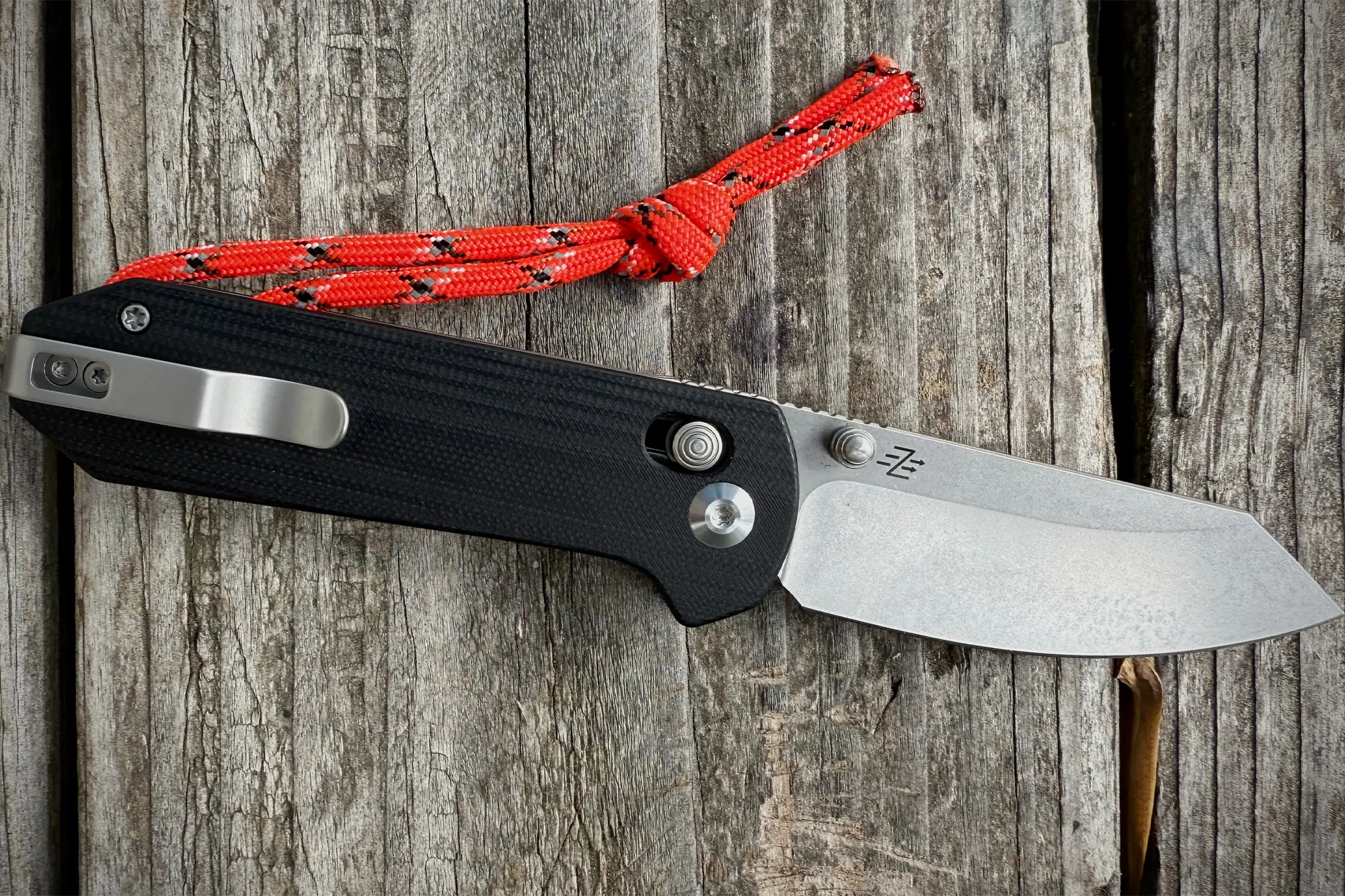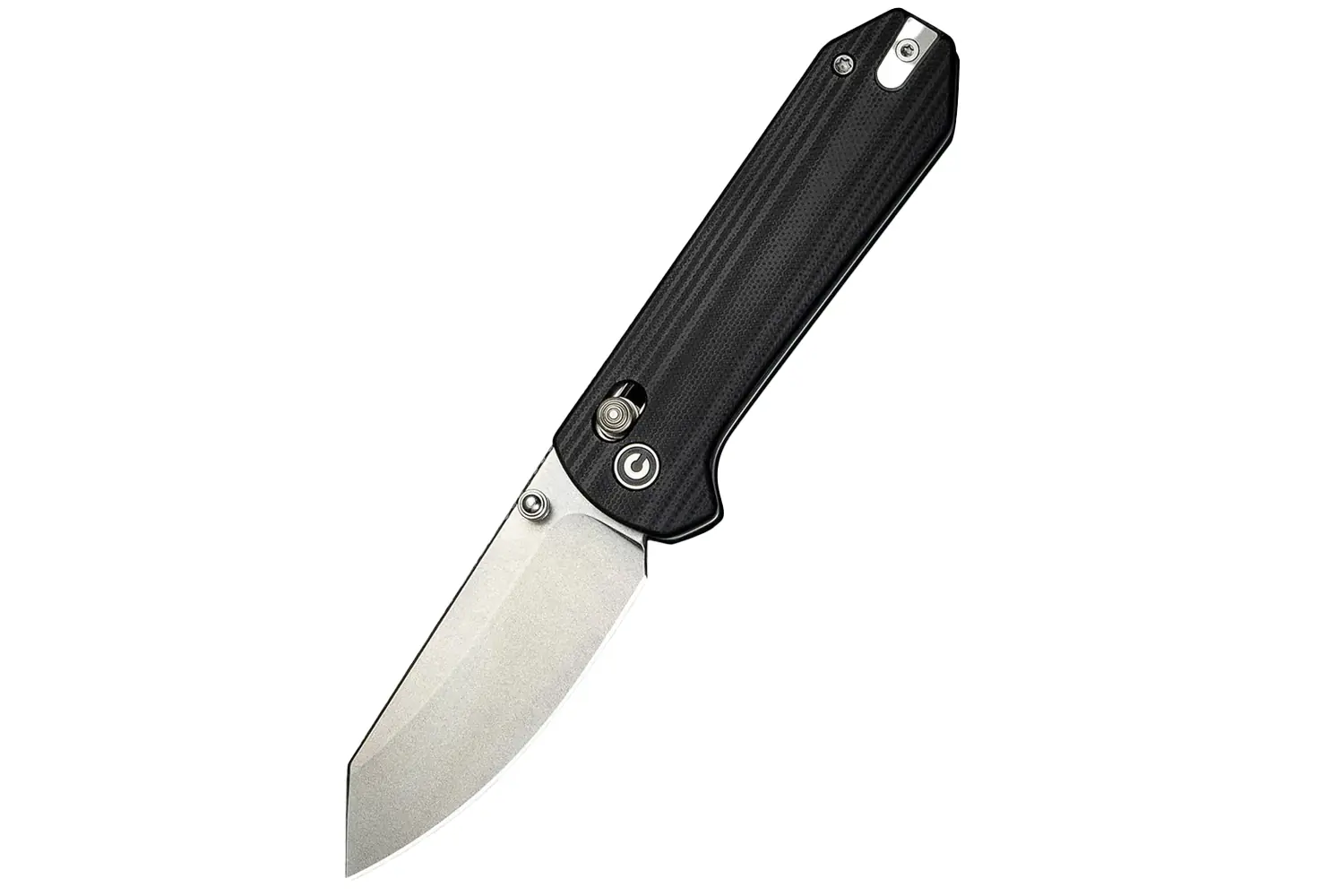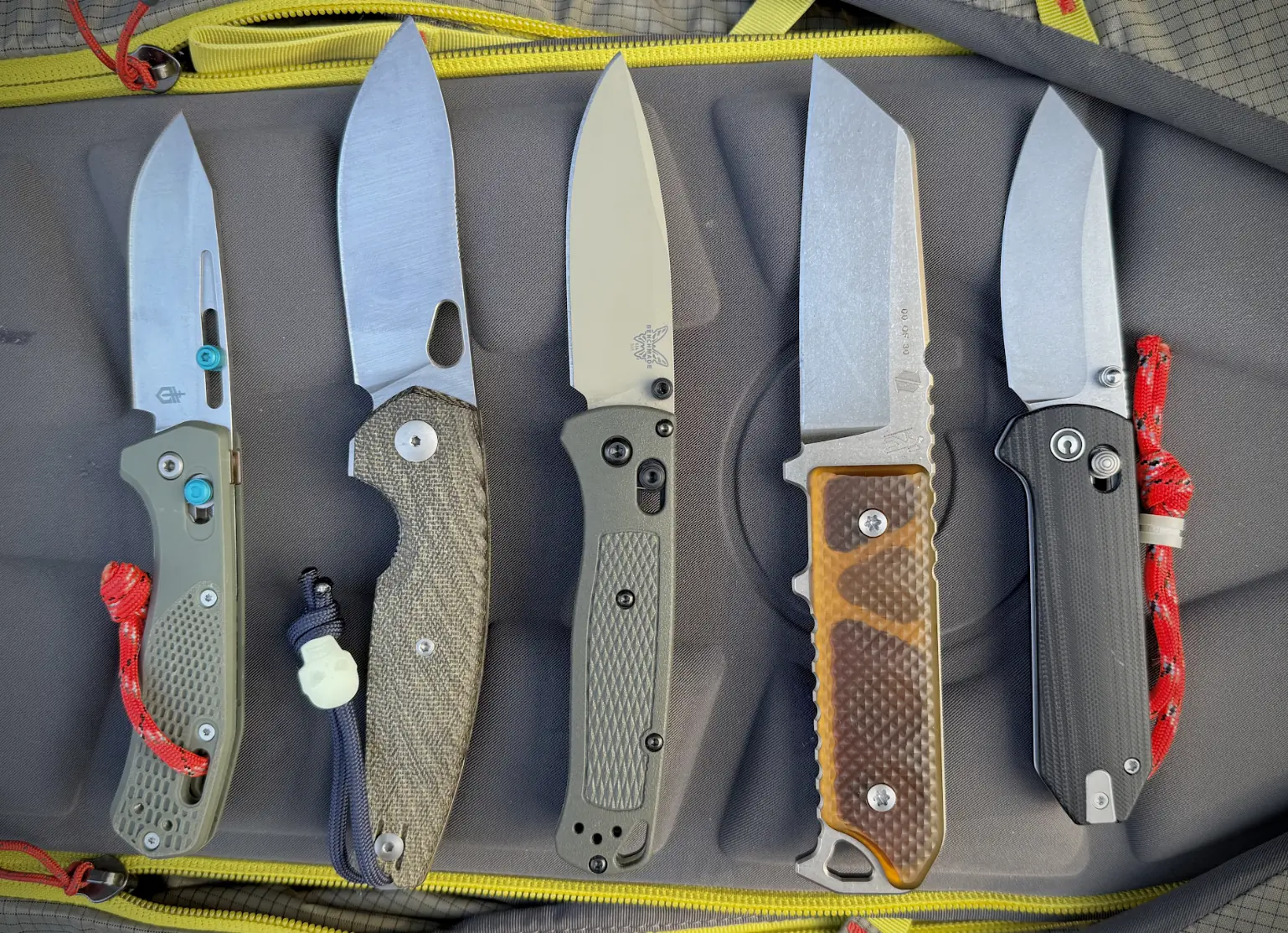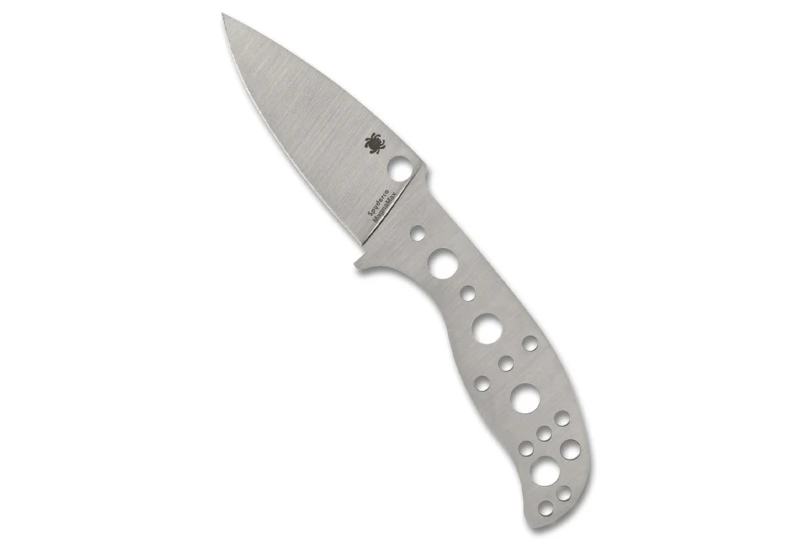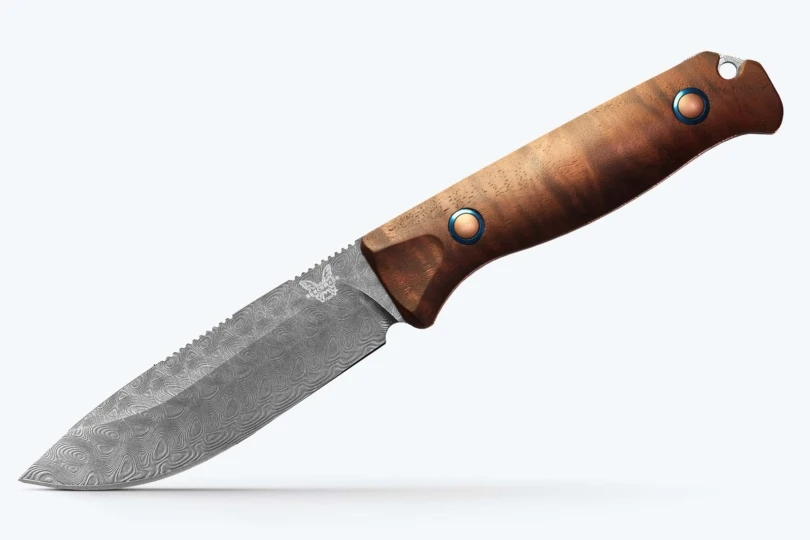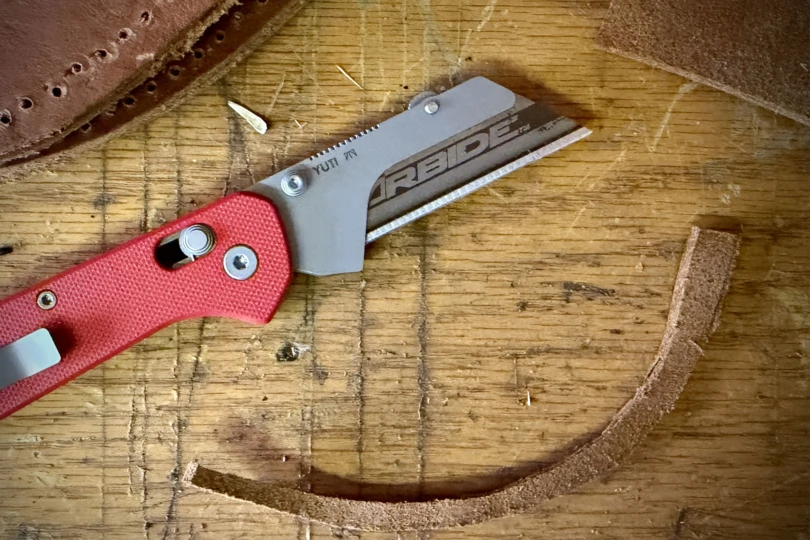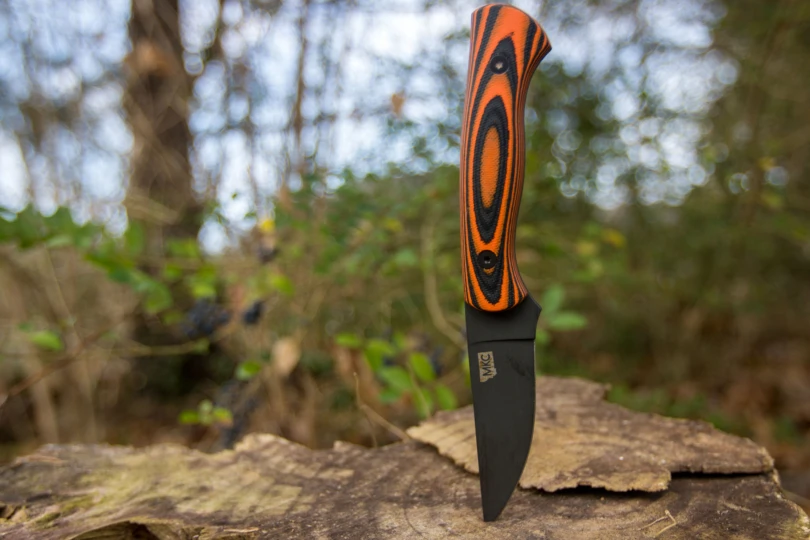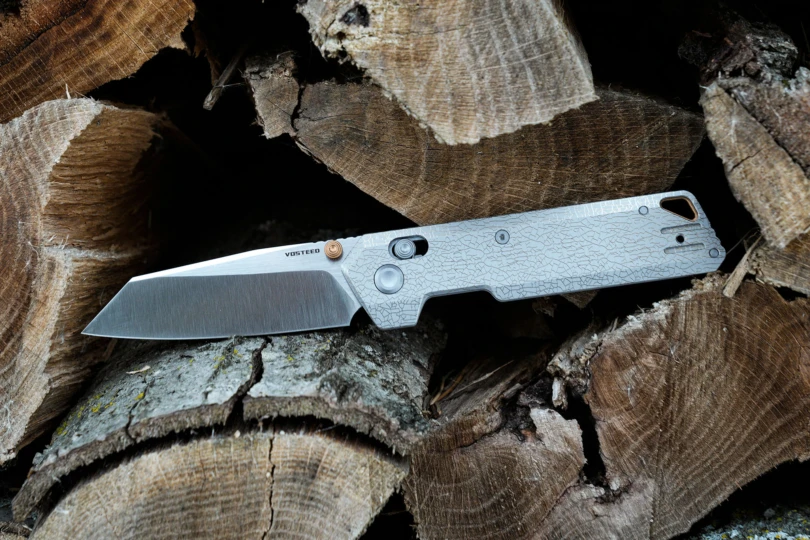Zac Whitmore, the EDC influencer behind both Zac in the Wild and Work Sharp in the Wild, once locked himself in a cabin to design the knife of his dreams. This resulted in the CIVIVI Yonder — CIVIVI’s first crossbar lock knife — and the first knife Whitmore ever designed.
In all his travels and exploits, Whitmore tired of using other people’s blades. His solution was to design a mid-size knife composed of quality materials befitting a quintessential EDC pocket knife. This ambition, coupled with the fact that the freshman knifemaker’s debut blade won the “Best Buy of the Year” award at Blade Show 2024, piqued my interest. I needed to know what the Yonder was all about.
So, CIVIVI sent a sample of the G10/Stonewashed version of the Yonder. Though I haven’t spent as much time with it as Whitmore did, there’s no reason to believe I won’t. The Yonder checks off many of the boxes I look for in my folding EDC.
In short: The CIVIVI Yonder EDC knife finds a near-perfect balance between form and function. It has quality materials and life-inspired design aspects, making a true daily taskmaster. Those looking for a knife to live in their pocket for years to come will find a lot to like about Whitmore’s premiere design.
- OAL: 6.62”
- Blade length: 2.88”
- Blade steel: 14C28N
- Blade shape: Spey point
- Grind: Flat
- Hardness: 58-60 HRC
- Lock type: Crossbar
- Carry: Right or left, tip up, deep carry
- Weight: 2.73 oz.
- Price: $67
Pros
- Great balance between size and weight
- Optimal grip options for all hand sizes
- 14C28N steel
Cons
- Crossbar lock has a shorter pull than the industry standard
- No obvious lanyard option
CIVIVI Yonder Review
Design & Features
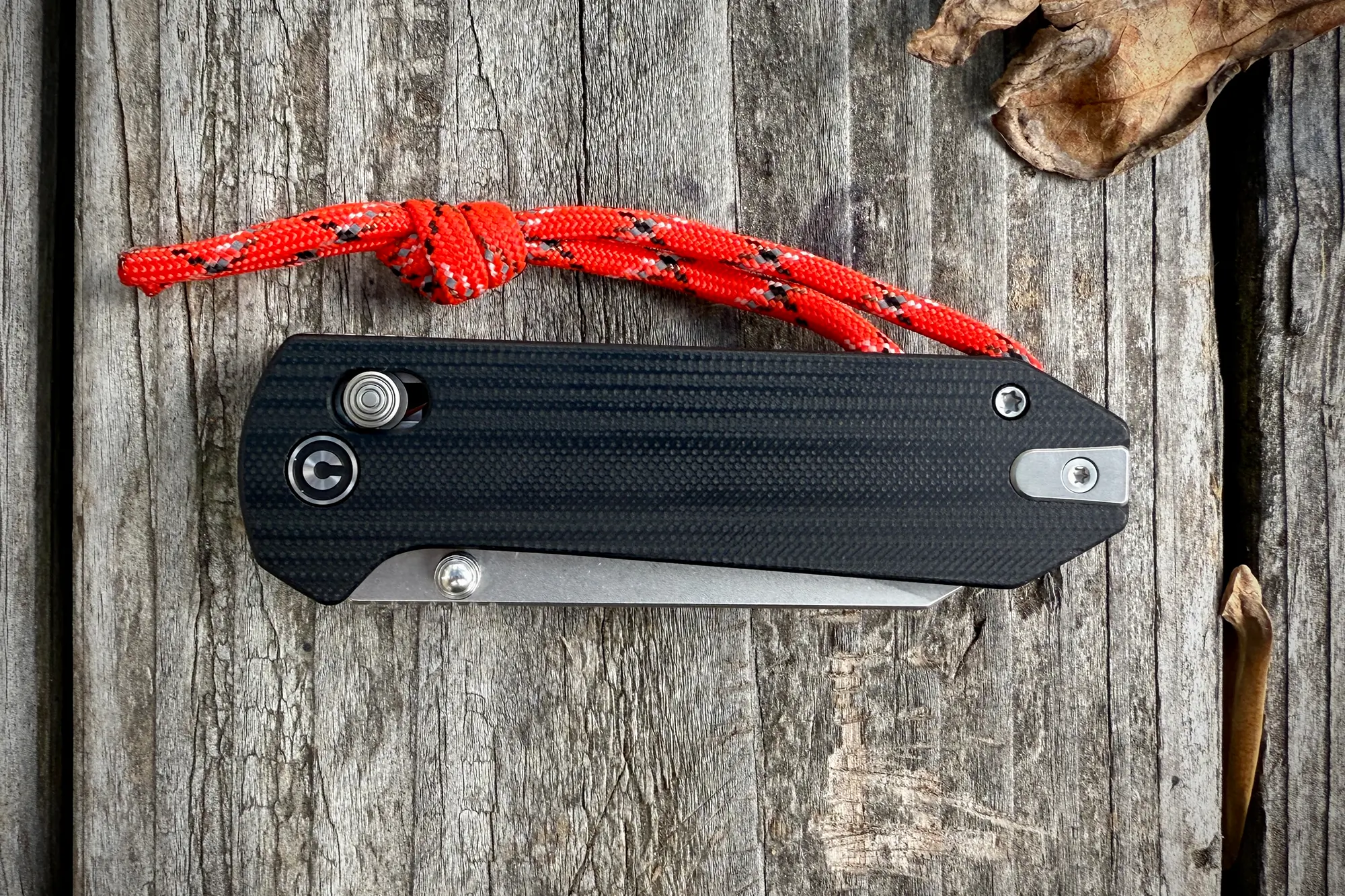
The Yonder is a mid-size folding knife with an overall length of 6.62 inches. This size means most people will find a comfortable four-finger grip.
Folks with big paws will appreciate the ability to move their thumb up onto the spine jimping, which has a slight ramp for increased grip. This offers a good three-finger grip that leaves the pinky to wrap around the butt of the knife for added articulation and blade control.
This knife carries a 14C28N Spey Point blade. A tough-as-nails stainless steel with good edge retention and easy resharpening, 14C28N can be made thinner without sacrificing its abilities. This allows the overall thickness of the Yonder to be more balanced with its overall length.
Like MagnaCut, 14C28N is being used more and more by different brands in the knife industry; it’s finally seeing its time in the spotlight after years of a cult following. (I actually prefer it over MagnaCut in smaller knives like the Yonder.)
The Spey Point-style blade makes the Yonder great for slicing, cutting, and stabbing. And the thinness of its 2.88-inch blade and high, flat grind enhance these traits.
The version of the Yonder I tested has smooth, black G10 scales that pair nicely with the knife’s stainless steel liners, pocket clip, and hardware. It’s also available with dark green, canvas Micarta handle scales and a black stonewashed blade ($70), and a more upscale version with Damascus steel and Guibourtia wood handle scales ($94).
A knife that is meant to last a lifetime might as well look good, too.
First Impressions
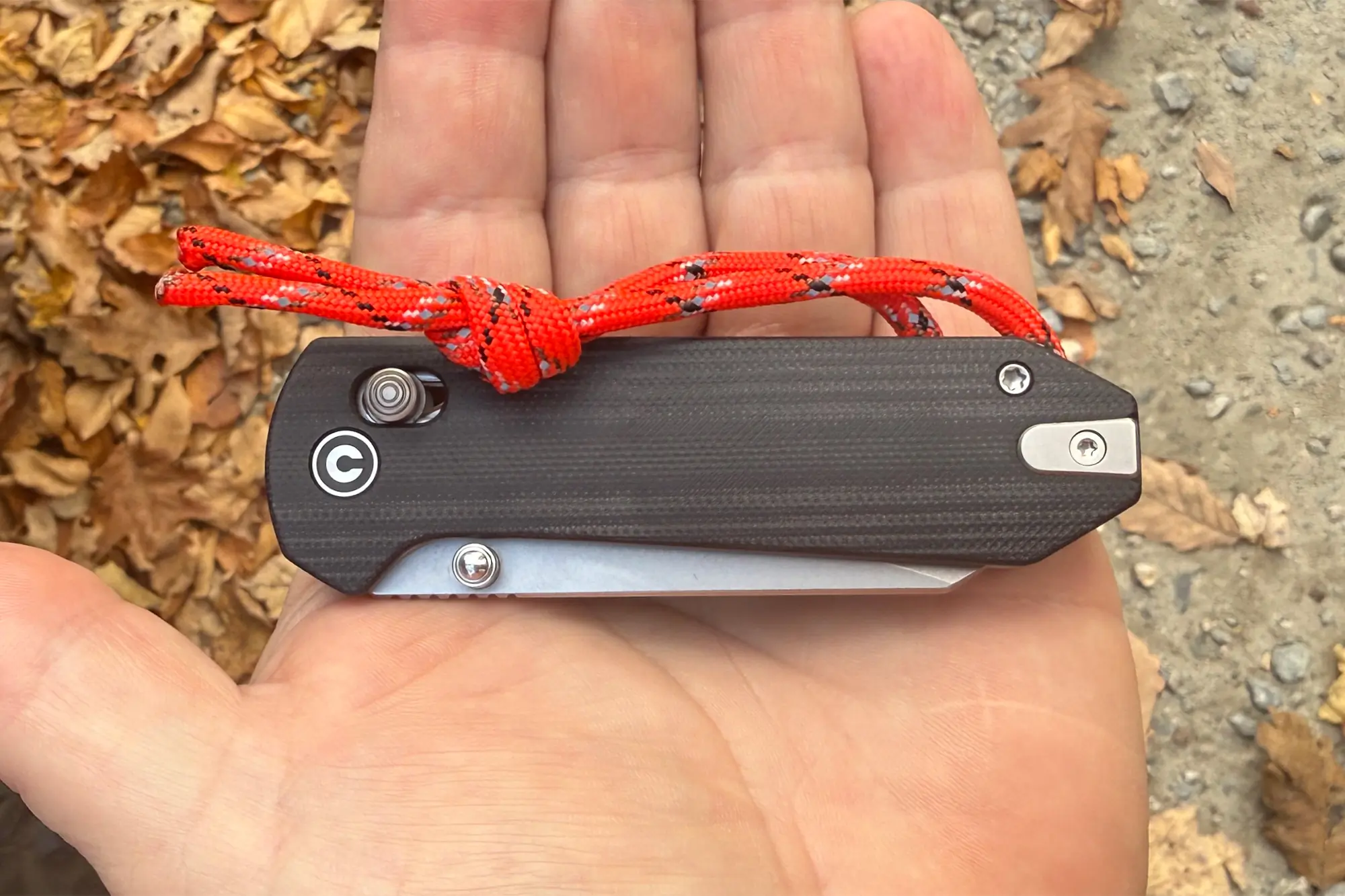



I’m prone to switching between folding knife sizes. As I always wear a fixed-blade belt knife in the fall and winter, the timing was right for me to mess around with the Yonder; on average, it’s an inch smaller than a knife I would carry if I didn’t have the belt knife in tow.
I have a wider hand with short fingers. This makes it tough for me to play the piano with any semblance of skill, but also helps me appreciate a knife this size.
Folded, this EDC knife fits across my palm with little overhang, a good indication that I will end up with a solid four-finger grip on the handle. This allows my index finger to tuck in against the guard and my thumb to live comfortably above the crossbar lock and thumb stud.
Like MagnaCut, 14C28N is being used more and more by different brands in the knife industry; it’s finally seeing its time in the spotlight after years of cult following. I actually prefer it over MagnaCut in smaller knives like the Yonder. 14C28N is a tough-as-nails stainless steel that can be made thinner without sacrificing its abilities. This allows the overall thickness of the Yonder to be more balanced with its overall length.
On paper (or computer screen), the butt of the Yonder looks choppy and unrefined. Now that I have had it in my hand, flicking it around a bit, it proves to be a function-over-form decision. If it were rounded off, it would limit the amount of control someone with a larger hand had with it. That would limit its overall function — and appeal.
In the Field
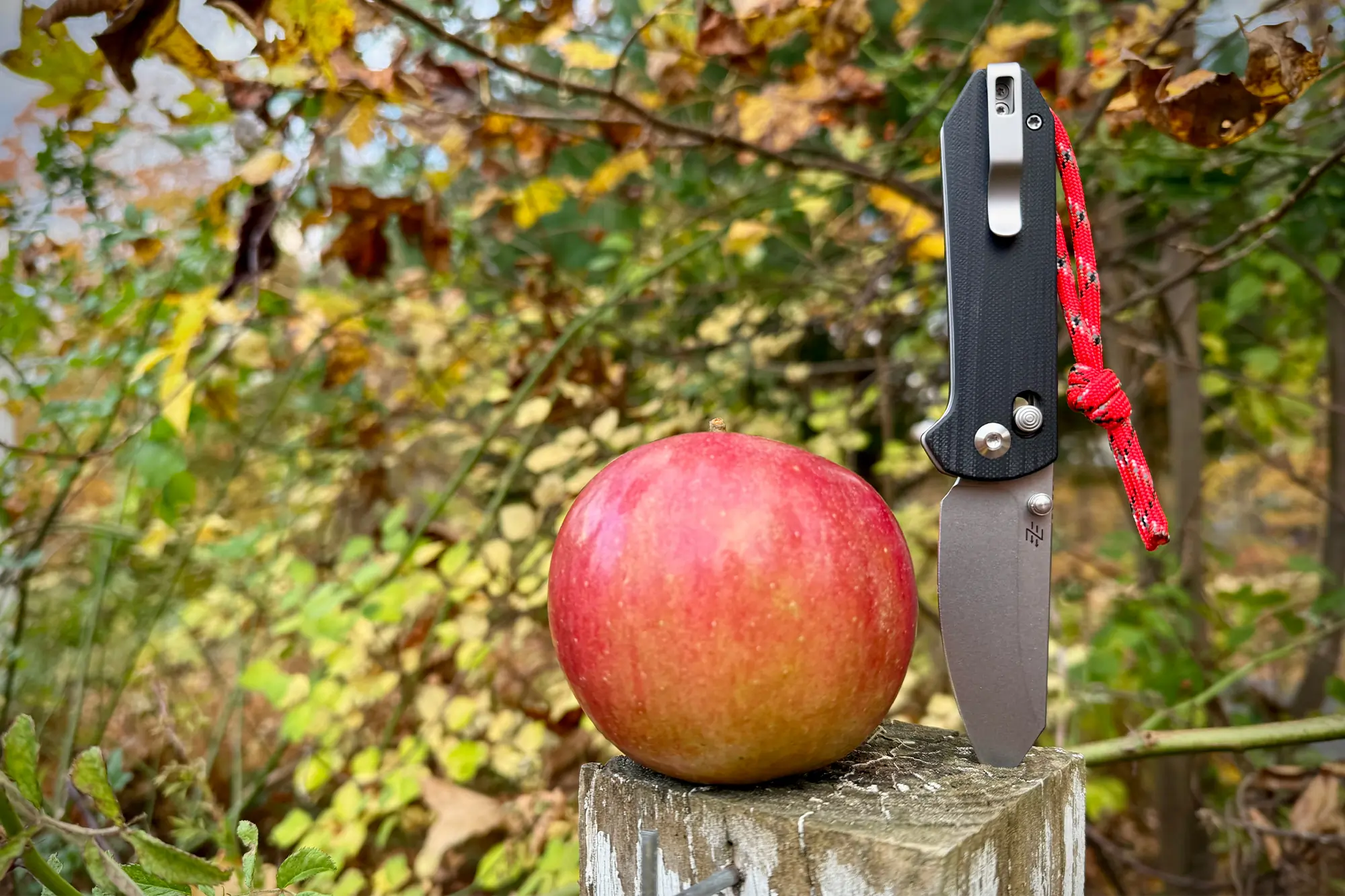



The Yonder makes me think back to the type of knife I carried around in high school and college. At that time, knives didn’t cater to a specific purpose or activity. Instead, they functioned more universally. Back then, I was a big fan of the Benchmade Mini-Griptilian because of its keen balance between size and utility. The Yonder has a lot of that baked into it — spiritually, if not physically.
I carried the Yonder in my pocket for 3 weeks before set to record my impressions of it. It’s an incredibly well-balanced workhorse. Its stainless steel and slicing capabilities made it great for food prep. The Spey Point blade excelled at retrieving half-cooked hot dogs off the fire, carving up apples, and drilling into wood. The more I used and handled the Yonder, the more fond of it I became.
Drawbacks
One aspect that still trips me up is the crossbar notch, which is shorter than the standard length. Because of this, I felt more resistance when I pulled back to open or unlock the knife. I have gotten more accustomed to this through my testing, but it’s worth noting.
I’m also not a fan of the crowned spine, as it limits the Yonder’s ability to start a fire with a ferro rod. But, I am carrying a belt knife that can, so I won’t dock it too heavily for that. Still, know the knife has some limitations.
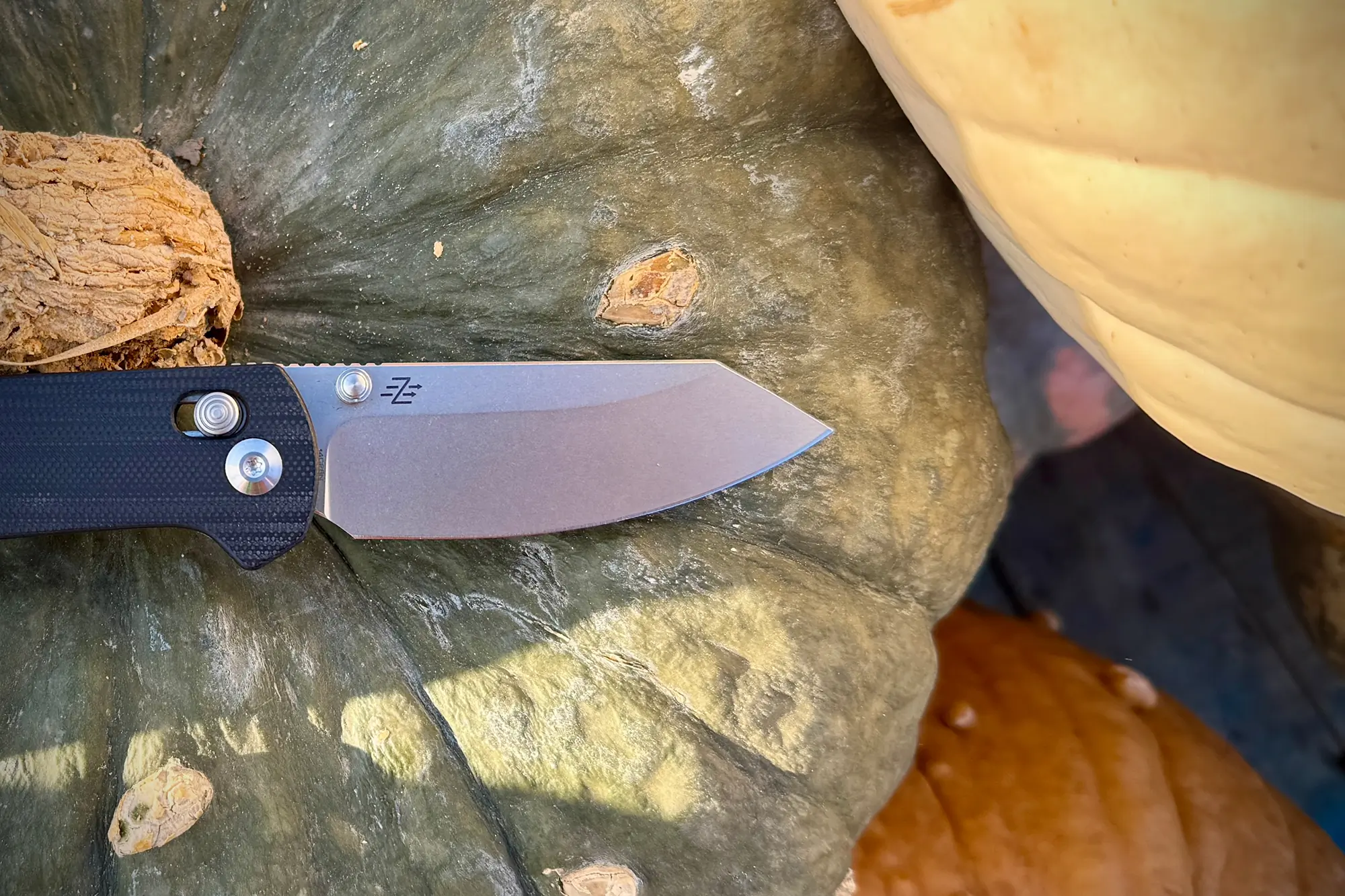



Lanyard Options
I’m a big fan of knife lanyards as they make retrieving a knife from your pocket much easier. I have even been known to avoid knives without them.
There is no obvious lanyard option on the Yonder. However, you can add a lanyard by running your cordage around the rear-most spacer on the top of the handle. (Thank you for coming to my TED talk.)
Conclusion: Who’s It For?
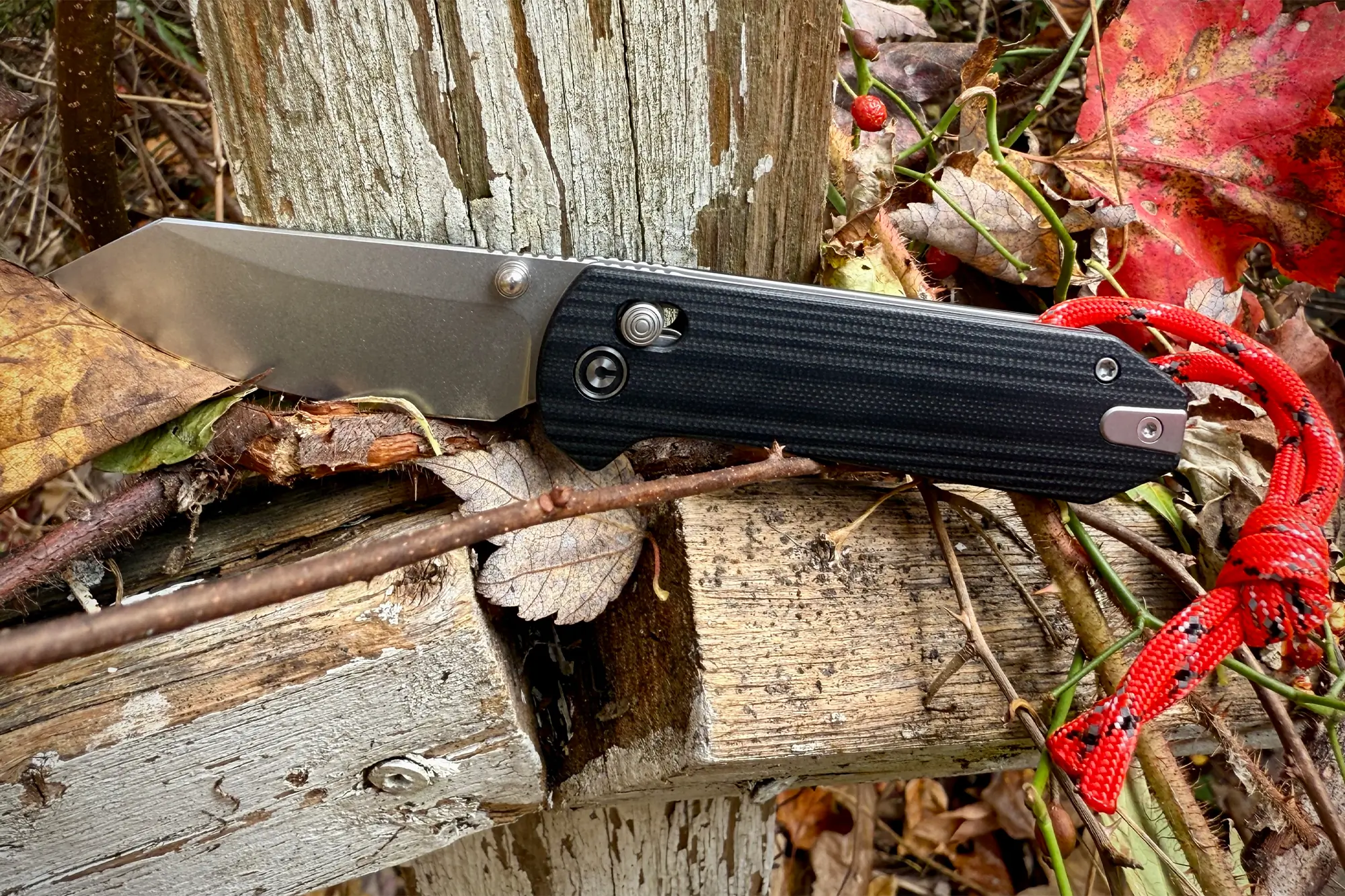



At the time of writing, the Yonder just released to the masses, to a lot of hype. Though Whitmore is well known in knife and EDC communities, it was not as a knife designer or maker. I think it’s safe to say he can add either of those titles to his LinkedIn profile — and throw “award-winning” in front of whichever he chooses.
As I see it, the Yonder stands as the epitome of EDC folding knives.
Honestly, I didn’t think I would like the CIVIVI Yonder as much as I have. There are many knives that could fill the slot of EDC workhorse. But it’s hard to ignore how well-balanced the Yonder is in form and function — and in price! Brands like CIVIVI have gained ground in the market because they found a way to develop quality knives from solid materials for under $100.
All this combined make the CIVIVI Yonder a damn dandy of an EDC knife.
